
views
X
Research source
Although cardiac disease in older dogs has no cure, it can be managed with medication and lifestyle changes.[2]
X
Research source
Treating with Medication

Talk with your vet. If your vet has diagnosed your dog with cardiac disease, you will need to decide how you want to treat it. Medications are effective at treating cardiac disease in older dogs. As you discuss the treatment options with your vet, ask some questions: How long will my dog need to take medication? Will the medications have bad side effects? How much will the medications cost? Will my dog’s heart get better? How often will my dog need to come back to the vet’s office?
Allow your dog’s veterinarian to perform imaging tests. A cardiac heart scan may give your veterinarian valuable information about the size of the heart and how diseased it is. X-rays can also provide your vet with useful information about heart size and lung congestion. Having this information will allow your vet to choose the best medication to treat your dog’s condition.
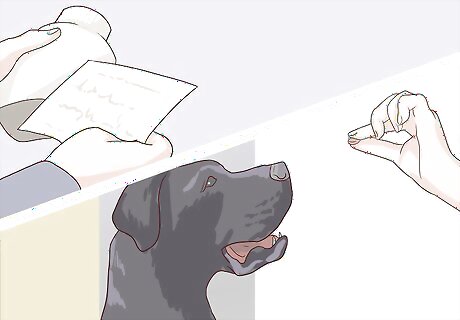
Follow prescription instructions. Your vet will likely prescribe several medications for you to give your dog. Each medication will have its own set of instructions. Follow these instructions carefully. If you have any questions about how to give each medication, ask your vet. You will likely give the medications by mouth.
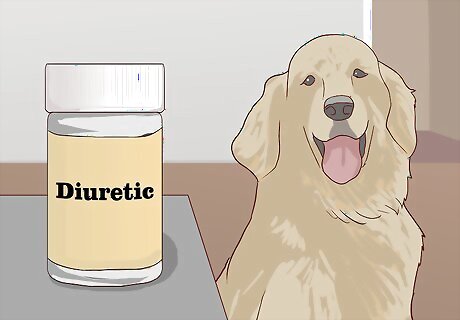
Prevent fluid buildup in your dog’s lungs. In older dogs with cardiac disease, a valve on the left side of the heart (mitral valve) is most commonly affected. When the mitral valve stops working well, fluid can buildup in a dog’s lungs. To get rid of this excess fluid, your vet will prescribe a medication called a diuretic. Diuretics cause a dog to urinate more frequently. Increased urination will remove the excess fluid.
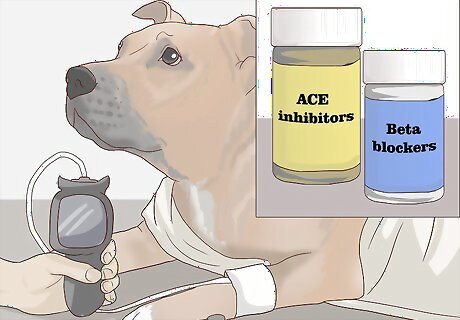
Lower your dog’s blood pressure. Cardiac disease often leads to high blood pressure in older dogs. Several types of medication, including beta blockers and ACE inhibitors, slow the heart rate and lower blood pressure. By lowering the blood pressure, blood is able to move through the heart more easily.
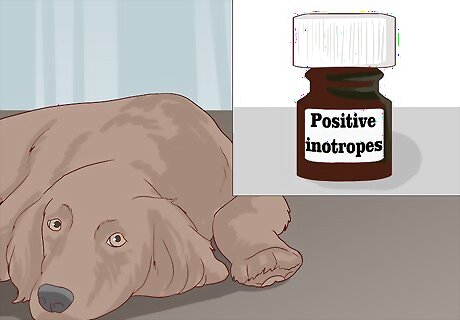
Help your dog’s heart muscles work better. Other medications, called positive inotropes, help the heart muscles contract more strongly to move blood through the heart more efficiently. They also slow the heart rate so the heart doesn’t have to beat so fast to pump blood.
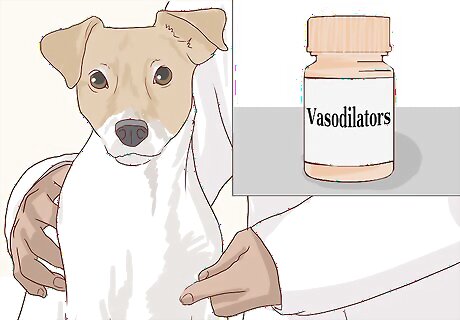
Improve your dog’s blood flow. Once your dog’s blood leaves the heart, it needs to flow properly through the body’s blood vessels. Medications called vasodilators will help blood flow more easily through these vessels. Vasodilators also help blood flow through the heart more easily.
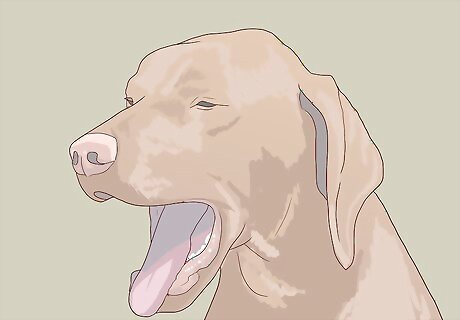
Watch for improvement in clinical signs. Along with coughing, breathing problems are a common sign of cardiac disease in older dogs. With medication, you should notice your older dog breathing more easily and slowly. With less fluid buildup in the lungs, your dog will also start coughing less.
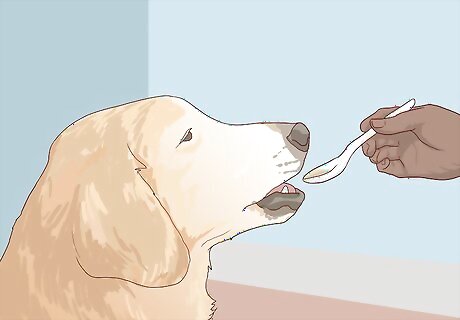
Adjust your dog’s medication over time. Cardiac disease gradually gets worse. As your dog’s mitral valve function worsens, your vet will need to make changes to your dog’s medications. For example, your vet may need to increase the dose of certain medications.
Making Lifestyle Changes
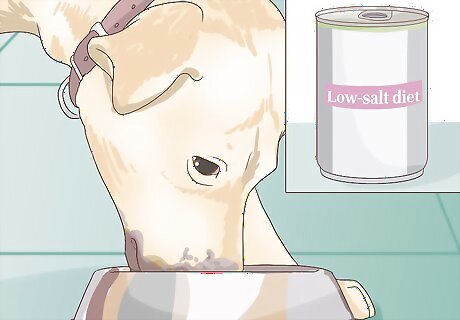
Feed your dog a low-salt diet. In addition to treating cardiac disease with medication, you will need to make changes to your older dog’s lifestyle. For example, your vet will recommend switching your dog to a low-salt diet, which will help prevent fluid buildup in your dog’s body. Low-salt prescription diets are available through your vet. Switch your dog to the new diet gradually. Over one to two weeks, mix more of the new diet in with the old diet until your dog is eating only the new diet. Let your vet know if your dog does not like the new diet. Your vet may recommend another diet for your dog.
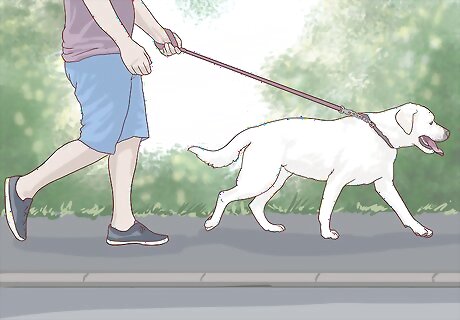
Limit your dog’s exercise. Dogs with cardiac disease can’t tolerate much exercise because their hearts don’t work very well. To manage your older dog’s cardiac disease, limit your dog’s exercise. Rather than taking your dog for a run or playing fetch, take your dog for easy, leisurely walks. Your older dog’s heart shouldn’t have to work any harder than it has to. Ask your veterinarian about an appropriate exercise schedule for your dog. If your dog has early stage heart disease, then he may benefit from regular walks. However, a dog with late stage heart failure will need to rest as much as possible.
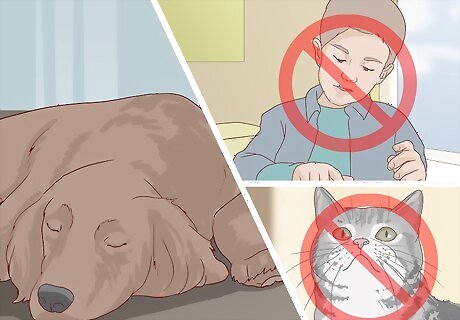
Decrease your dog’s stress. Like exercise, stress can make a dog’s heart beat faster and work harder. Without a well-functioning heart, your dog won’t be able to handle stress very well. Keep your dog’s life as stress free as possible: Keep your dog’s daily routine the same. If you have young children, do not let them play roughly with your dog. Limit your dog’s interactions with unfamiliar pets or people.
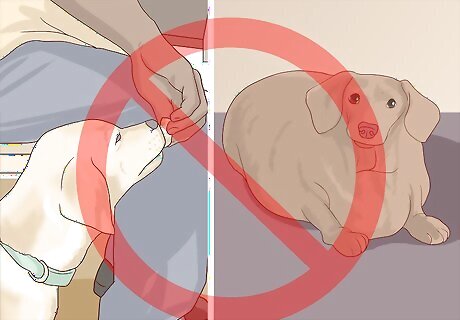
Get your dog to an ideal weight. Excess weight can put stress on a dog’s body and make the heart work harder. If your dog is overweight, help it lose weight. Because you won’t be able to increase your dog’s physical activity by very much, you may need to make adjustments to your dog’s diet. Talk with your vet about ways to get your dog to its ideal weight. If your dog is already at an ideal weight, try to maintain this ideal weight by not overfeeding your dog or giving it table foods.


















Comments
0 comment